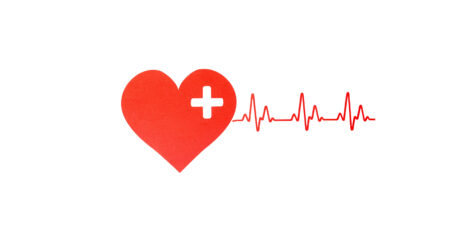A Simple Yet Powerful Practice To Pull You Back Up When Life Gets Challenging
Life could throw curveballs at any given minute – there’s no avoiding it. Whether you’re riding the highs of success or battling the lows of illness, heartbreak, and failure, there’s one thing that must remain constant: looking after your health. For me, caring for my health on challenging days are as simple as taking a short walk. You would be surprised how easily my 5-minute walks have turned around a bad day.
The temptation to let everything slip when you’re overwhelmed is real, that’s why so many fall into a deep depression. But your body and mind don’t stop needing care just because times are tough. Health isn’t optional; it’s essential. When you keep nurturing your body, even on the hardest days, you build the resilience needed to face life’s challenges head-on. No matter what’s happening, your health should be non-negotiable. It’s your energy, your vitality, that gives you the strength to rise above the struggles and celebrate the victories. Sometimes, little acts of caring for your body can help your mind step out of the darkness and push towards optimism.

Today, I want to discuss things that you need to get done, no matter what you’re going through in life. Let’s talk about how you can pull yourself back together with the help of simple yet effective ways, starting with five-minute walks for better health.
Prioritizing Health Amidst Adversity
When I first met them, several clients spoke about how they were unable to pull themselves out of the spiral of negativity. Many get diagnosed with chronic diseases, autoimmune conditions, and degenerative disorders. The others may be seeking guidance to bring more discipline and health-focused changes into their lives after a rough spot. I gave them the same advice I’m about to share with you.
Health is the one thing you cannot afford to neglect, no matter what life throws your way. Whether you’re celebrating success or feeling crushed by adversity, your body still needs movement, nourishment, and rest. It’s easy to let go of healthy habits when things get tough, but that’s exactly when you need them the most. When you’re down, staying active and eating well can help you build the energy to fight back. When you’re up, maintaining these practices prevents complacency and keeps you strong for whatever comes next.

The reality is that life will always have ups and downs, but your health shouldn’t. Keeping up with your routines—no matter how small—gives you a sense of control, grounding you in the midst of chaos. It’s not about doing everything perfectly but about showing up for yourself every day, even when it’s hard. Consistency is key, and your health is your responsibility.
For instance, the simple act of walking for just five minutes can help you create the change you’re praying for. It sounds easy, but when you’re depressed and feeling low, the resistance you face can be heavy. So, let’s talk about how you can move through a phase of low emotions.
The Science Behind 5-Minute Walks: Small Steps, Big Impact
Sometimes, all it takes is a 5-minute walk to reset your mind and body. But what’s the science behind how these small, simple steps? Let’s understand how this a little effort can make a huge impact on your overall health and well-being.
- Hormonal Boost: Walking triggers the release of endorphins, your body’s natural mood enhancers. These “happy hormones” reduce stress, anxiety, and even pain.
- Endorphins and Serotonin: A quick 5-minute walk stimulates the release of these feel-good hormones, lifting your mood and helping to reduce stress and anxiety. This surge of happiness hormones can shift your mental state, offering a fresh perspective on challenges and bringing clarity.
- Mental Decluttering: Movement naturally clears mental clutter. Walking allows your mind to wander, untangling thoughts and helping you reset. This mental break enhances focus, creativity, and decision-making.
- Circulation and Oxygen Flow: Even a short walk gets your blood pumping, increasing oxygen flow to your brain. This oxygen boost sharpens your cognitive function, improving alertness and brain health.
- Cortisol Regulation: Walking activates the parasympathetic nervous system, which lowers cortisol (the stress hormone) levels. This helps reduce the physical effects of stress and promotes relaxation.
- Metabolism and Muscle Activation: Regular short walks counteract the negative effects of prolonged sitting, keeping your muscles active, boosting metabolism, and supporting heart health.

Overcoming Emotional Slumps
Emotional slumps can be debilitating. When sadness, anger, or anxiety hits, the last thing you might feel like doing is taking care of your health. Yet, this is precisely when you need it most. Emotional lows can easily spiral into neglect—skipping meals, avoiding exercise, or losing sleep. But the truth is, maintaining even the smallest health routines can make all the difference in pulling yourself out of that slump.
Think of it like this: going for a short walk, eating a balanced meal, or simply stretching for a few minutes can shift your energy and mood. It might seem like a small step, but these actions compound over time, helping you regain control over your emotions. The hardest part is getting started, especially when your mind is telling you to give up. But remember, you don’t have to take on everything at once.
Just start with one small action.
The key is to break the inertia of emotional stagnation.

Even if it’s just putting on your shoes and stepping outside for a few minutes, it matters. Each small step creates momentum, and that momentum can help pull you through the toughest of times. Emotions may try to derail your progress, but by committing to small, consistent actions, you reclaim your power and keep moving forward.
How to Take Action:
I want you to make a small promise to yourself and keep it everyday. No matter what, step out and walk for five minutes. It’s always important to use common sense, for instance, if you are physically unwell and not able to move comfortably. Then, try an easy breathing exercise that will regulate your emotions for five minutes.
The point is, this activity you begin with the intention to do for five minutes, will increase to ten minutes and longer over time.
You’ll soon realize how walking, breathing, or journaling helps you get rid of mental clutter. When you keep small promises to yourself, you’re also boosting your self esteem and confidence. It also enhances trust in oneself, which is the basis for accomplishing bigger, more challenging tasks.
Breaking Through Comfort Zones
“Why me? We may never know, but what we know for sure is the sooner we move from that ‘why me’ mode to action, the time change can occur at all levels. Many things in life we will never know. We can intend for life to get better, but staying stuck won’t help.”
- Luke Coutinho
Complacency can be just as dangerous as emotional lows. When life is comfortable—when you’re successful, happy, or content—it’s easy to let your health routines slide. The subtle danger lies in believing that just because things are going well, you can afford to neglect your health. But comfort can breed complacency, and before you know it, the healthy habits that once served you well have been replaced by shortcuts and convenience.
The problem with complacency is that it often sneaks up on you. You might feel like you don’t need to push yourself anymore because things are “good enough.” But this is where the real risk lies. When you let your guard down, you lose the momentum you’ve worked so hard to build. Staying committed to your health practices, even during times of comfort, ensures that you’re prepared for any challenges that may arise.
It’s about recognizing that health isn’t just for when things are tough; it’s a daily commitment that sustains you through the highs and the lows. By staying consistent, you keep yourself strong, resilient, and ready for whatever comes next, even when life feels easy.
The Power of Repetition and Habit Formation
Consistency is the foundation of lasting change. Repetition is the tool that builds powerful habits, transforming actions from difficult tasks into automatic behaviors. While the first few days of forming a new habit may feel like an uphill battle, the brain quickly adapts through a process known as neuroplasticity. By consistently repeating an action—whether it’s exercising, meditating, or choosing healthier meals—you strengthen new neural pathways that make it easier over time.
- The 3-Day Rule: The initial struggle is real, but pushing through the first three days is key. Once you’ve created that momentum, it becomes progressively easier to stick to the routine.
- Neural Pathways: Repetition carves new pathways in the brain, making once-challenging tasks feel more natural and automatic.
- Habit Stacking: Attach new healthy habits to existing ones to make them stick. For example, stretch while waiting for your morning coffee to brew.

Building habits through repetition doesn’t mean the effort disappears entirely, but it does reduce the resistance over time. The more you repeat a positive behavior, the easier it becomes to maintain, even on difficult days.
Thoughts, Words, and Their Impact on Health
Your thoughts and words have a profound impact on your physical and emotional health. The way you speak to yourself shapes your mindset and, ultimately, your actions. Negative self-talk—like calling yourself lazy, unworthy, or unattractive—sends powerful signals to your body, which can manifest in low energy, poor health, and a lack of motivation. On the other hand, positive affirmations and constructive self-talk can lift your spirits and create an environment where healing and growth become possible.
- Mind-Body Connection: Your thoughts directly influence your body’s biochemical responses. Negative thinking triggers stress hormones, while positive thoughts release endorphins and promote healing.
- Language Matters: Avoid labeling yourself with negative terms. Instead of saying, “I’m depressed,” try framing it as “I’m feeling low right now.” This subtle shift helps your mind view emotions as temporary rather than defining.
- Affirmations: Use positive affirmations daily. Even if they feel awkward at first, the repetition will start to reshape your internal dialogue.
“According to ancient texts, “The power of life and death lies in the tongue”. Words are so powerful, they can either build you or destroy you. Learn to use your words to your advantage!”
- Luke Coutinho
The words you use, both in your head and out loud, create the environment for your cells to either thrive or struggle. Choosing positive, constructive language empowers you to take control of your health.
Creating a Positive Environment
Your environment is a reflection of your health. The people you surround yourself with, the media you consume, and the physical spaces you occupy all influence your well-being. A positive environment nurtures your health by fostering supportive relationships, promoting relaxation, and reducing stress. Surround yourself with people who inspire and uplift you, and be mindful of the content you engage with—what you watch, read, and listen to shapes your mindset.
Create a calm and organized space, free from clutter and chaos. By intentionally curating your environment, you empower yourself to stay on track with your health goals, even when life gets tough.
Taking Personal Responsibility
Ultimately, your health is your responsibility. No one else can make you eat better, move more, or get enough rest. While external support from experts and loved ones is helpful, lasting change comes from within. It’s easy to make excuses when life is challenging, but excuses won’t improve your health. Instead, choose action, even when it’s hard. Hold yourself accountable for the choices you make every day, recognizing that every decision—big or small—impacts your well-being. Personal responsibility is empowering because it means that you have the power to make positive changes. By embracing this mindset, you take control of your health and your future.

Tying It All Together: The Five Pillars of Lifestyle
The five pillars of lifestyle – Deep Cellular Nutrition, Adequate Exercise, Good Quality Sleep, Emotional Health, and Spiritual Connection – serve as the foundation for resilience, helping you navigate both good and bad times. Consistency in these areas strengthens your mind and body, enabling you to stay balanced no matter what life throws at you.
- Deep Cellular Nutrition: Fuel your body with whole, nutrient-dense foods. If you’re feeling low for a prolonged period, it’s worth getting an assessment of any possible deficiencies. Taking health supplements that restore essential vitamins like B12 and D3, or minerals like magnesium, zinc, and potassium can aid in mood disorders. Balanced meals boost energy, support immunity, and stabilize your mood.
- Adequate Exercise: Regular movement keeps your body strong, reduces stress, and improves mental clarity. Make time for at least 30 minutes of moderate exercise, five days a week. Start with short walks if you’re not used to other forms of working out. If you’ve never tried it, start with just five minutes. Then gradually increase your stamina by walking for longer durations. If you have health conditions like kidney disorders, align your fitness goals with expert advice to ensure you’re not pushing your body too far.
- Quality Sleep: Did you know your relationship with sleep dictates your outlook on life, productivity, and even gut health? Restorative sleep is crucial for recovery, hormone balance, and mental health. Prioritize deep sleep over social outings and late nights to repair your neural pathways. It will also help your body build strength, immunity, and emotional resilience.
- Emotional Health: Depression, anxiety, and negative feelings are often precursors of underlying emotional turmoil. What emotions have you been suppressing recently? Have your past experiences created repressed emotions of anger, resentment, and grief? Make space for your emotional health by confiding in a trusted friend or loved one; if you’re more comfortable in a professional setting, speak with a therapist. You can invite mindfulness and self-reflection through journaling to manage stress and cultivate a positive mindset.
- Spiritual Connection: Whether through prayer, meditation, or time in nature, spiritual practices provide grounding and inner peace. Sound healing, for example, uses frequencies to balance the body’s energy and reduce stress. Did you know walks and meditation work extremely well together? Find a peaceful park, or a quiet terrace, and meditate on your intentions. Reprogramming old beliefs through affirmations or guided visualizations can break negative thought cycles and foster new, empowering beliefs. These spiritual tools can be invaluable during tough times, helping to reconnect you with your inner strength and sense of purpose.
Together, these pillars can help you create a holistic approach to health that supports you through life’s highs and lows.
Final Word
Whether you’re grappling with a health challenge, navigating personal trials, or facing career hurdles, it’s these moments that truly test your resolve. But amidst the chaos, there’s one thing that should remain constant: our commitment to our health. Think of it as your anchor; a non-negotiable when life gets uncertain.
Maintaining health practices like going on regular walks isn’t just about keeping our bodies fit—it’s about nurturing resilience, mentally and emotionally, no matter the external pressures. So, let’s explore why it’s crucial to stick to these health routines, and how they empower us to not just survive, but thrive, during tough times.
Ready to take the first step towards self mastery?
Start small, with one manageable change today.
Know more about our book, Small Wins Everyday.
Set up a one-on-one consultation with our integrative team by reaching out to us at
1800 102 0253 or write to us at consults@lukecoutinho.com.
Disclaimer: Always make an informed choice. Keep your healthcare provider in the loop before trying anything new, especially if you are going through a medical condition or are on medications.
|
From a pimple to cancer, our You Care Wellness Program helps you find a way Talk to our integrative team of experts today 18001020253 |










Leave a Reply